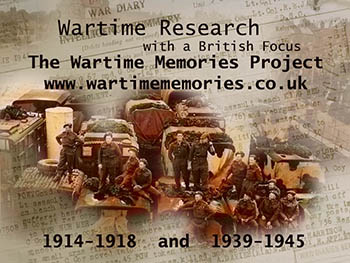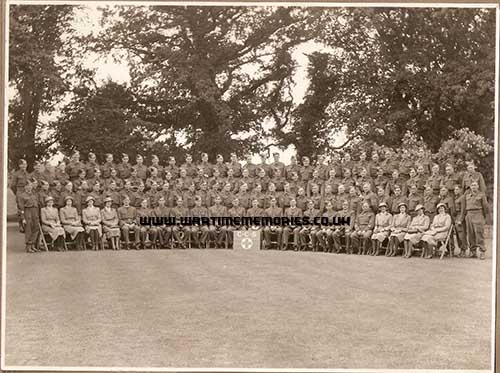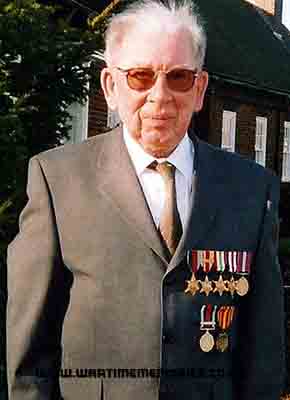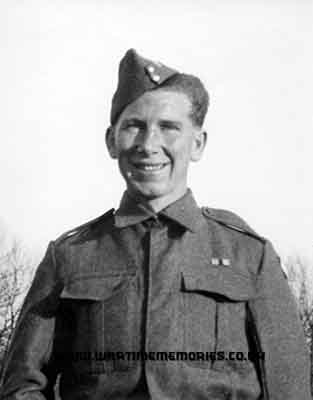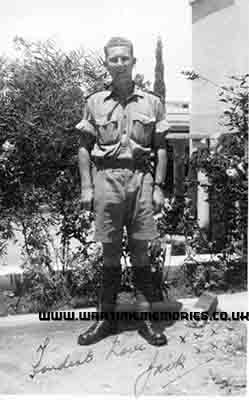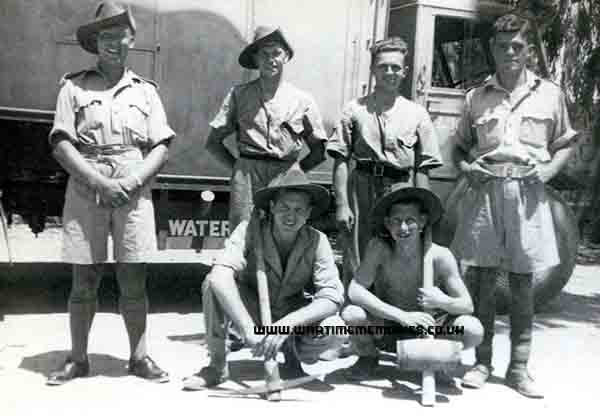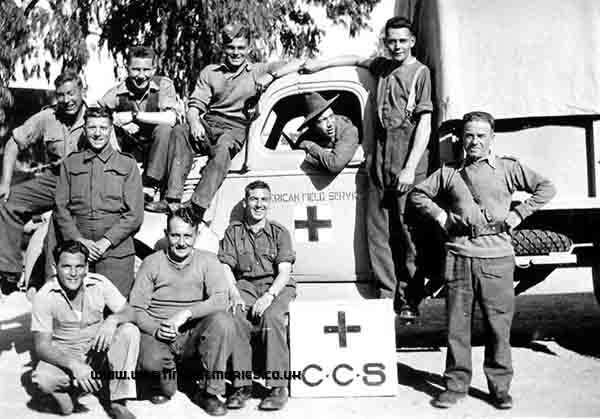L/Cpl. Jack Blane No 3 (BR) Casualty Clearing Station RAMC
This is the account my father Jack Blane wrote for the family of his war. He wrote it in 2002, at the age of eighty three:
I entered military service at Crookham Barracks, 15th September 1939. After three months’ training I had Embarkation Leave for one week at Christmas.
Having embarked for France on a bitterly cold New Year’s Eve, I was sent to Number 3 Casualty Clearing Station (3 CCS) at Mondicow and remained with that unit throughout the war. It was very cold, with deep snow. I read last year, 2001, that 1940 was the coldest winter since 1815. I only had a stretcher to sleep on and two blankets, in a cold, old house with no heating. For two months I went to bed with all my clothes on, including my greatcoat and gas cape.
When the “Phoney War” ended and Germany invaded, we gradually made our way to the coast. We had some dodgy times on the way, including evacuating a clearly marked ambulance train of severely burned civilians from Rotterdam, whilst under attack from German planes.
On 31st May we were ordered to leave our billet for hopeful evacuation. My sergeant gave me a big pack of medical record books, then told me to set off to Dunkirk and that on the way the others would help me. I set off into France and kept plodding along the sand. I did not see any more members of our unit but finally saw a Royal Navy man. I asked him if there was any chance of getting off. He told me to stay where I was and wait but that I could not take the pack. So I just threw it down and left it on the beach.
I seemed to be alone and must have fallen asleep. When it became dark a lot of other troops assembled and a smallish boat arrived. We had to wade into the sea up to our chests. The Navy chap in charge said that when he ordered, “Stop,” we had to stop trying to get aboard or he would shoot us – and I am sure that he would have.
We were all finally taken to a larger “little ship.” I thought, “Oh, Good: we should be in England by morning.” When I woke up, big shock. We were still cruising off shore and the skipper would not leave while he could see anyone on the beach. The last man to be brought aboard was in a bad way, having been shot by a machine gun. He died within sight of England.
After disembarking I was put on a train and eventually arrived at Oswestry Barracks about midnight, still soaked through. I had one nightmare after this while I was billeted with nice people in Leeds, where I finally rejoined my unit all safe and sound.
From June 1940 to December 1941 I was stationed at various places in England. Kitty and I married on 9th October 1940. That Christmas was the last we had together until 1945.
Our unit left Liverpool in December 1941 and we spent Christmas Day that year in Sierra Leone harbour. Later, I had four lovely days with civilian friends in Cape Town, South Africa. We then went to Palestine and to Beirut – which was a lovely place then.
On our way to the 8th army I met up with my brother Bernard for four hours in Cairo. I never did know how that was arranged or by whom.
I spent Christmas 1942 at Tobruk and New Year’s Eve at Bengazi. Then it was on to the last battle for the 8th Army in North Africa. After that, we went to Malta for two weeks’ rest and then it was the invasion of Sicily and into Southern Italy. Our ship came under heavy fire while we lay off Italy prior to landing.
We sailed for England from Bari on a lousy, overcrammed ship. We had half a ration of bully beef for Christmas dinner 1943. At night all the floors, the dining tables and hammocks, were full of men.
In January 1944 I arrived in England and was stationed in Cambridge, hooray!! I was allowed a sleeping out pass. Kitty came to Cambridge and we had a lovely time, staying with my Aunt Alice. (Our first daughter, Jean, was born in October that year!)
On D-Day, 6th June, we sailed in convoy down the Thames. Once off Dover we could see and hear the big German guns in Calais firing across the Channel. They hit the ship directly ahead of us, setting it on fire. It was terrible to see. How lucky we were to escape unharmed. We lay off the French coast until D-Day plus two. Then we landed on Gold Beach with 30 Corps and set up our Casualty Clearing Station.
We were very busy and it was very noisy from the gunfire. I slept in a ditch. The Germans shelled us one night and two Nursing Sisters were injured. The army moved us to a safer area the next day.
On we went to Brussels and then to Eindhoven. Next it was Nijmegen where the road back (our supply road) was cut off by the Germans for four days.
We took casualties from the battle for Arnhem. Six operating theatres were working, three on day shift and three on night shift. I did not leave the hospital building for two weeks. After two months there we were relieved by the Canadians.
Christmas Day 1944 was spent somewhere in Belgium. Then it was on to the Ardennes and the “Battle of the Bulge” to help the Americans, who suffered heavy losses. There was deep snow and it was bitterly, bitterly cold.
We were back to Nijmegen for the Battle for the Rhine. Twentyfive pounder guns fired over the hospital all day. The forest flooded too and all casualties and equipment were wet through.
I had a short home leave in March, to see Kitty and meet my new daughter for the first time. Then it was back to my unit. We made our way into Germany where, after being in various places, we ended up just outside Hanover.
December 1945 and back in England. I had four weeks demob leave. So Christmas 1945 I was home at last. Demobbed February 1946.
There were Good Times and Bad Times – but always Good Friends.
Jack Blane, 3rd March 2002
Post Script: What my father does not include in this understated account are the horrors he experienced during “his” war. These strongly affected him to the end and when he spoke of them, which he still did only sparingly, it was with great feeling. I, and all our family, are very proud of him.



